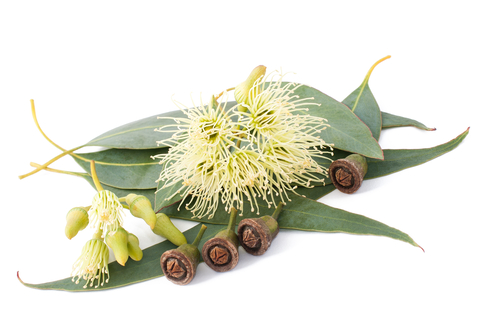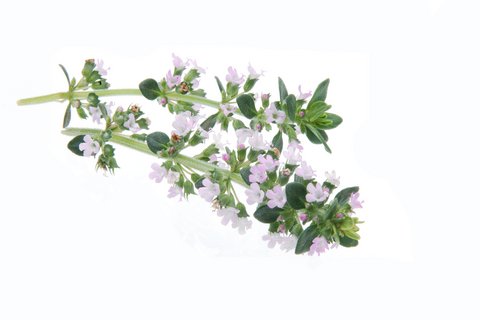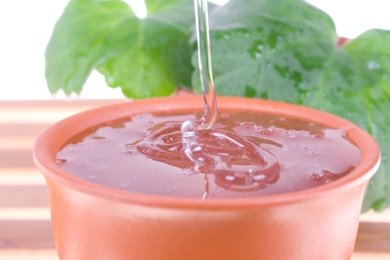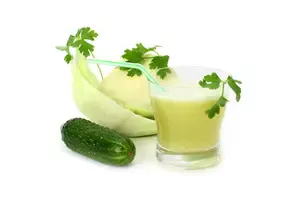Benefits of Pomegranate Juice
"Let food be your medicine and your medicine be your food. Each one of the substances in a person's diet, acts upon the body and changes it in some unique way, and upon these changes the whole life depends, whether in health, in sickness or convalescent."
Hippocrates 2 000 years ago.
Before we go into the Benefits of Pomegranate Juice let's have a quick squiz at the history of the Pomegranate.
Pomegranate (Punica granatum) is derived from the Latin name for "fruit of many seeds."
It has become quite a trendy fruit in the last year or so and has been used more and more in fine dining recipes and venues.

King Midas reigned in the eighth century BC in ancient Turkey and evidence was collected from his tomb in 1957 that this fruit with spiny tipped branches, bright scarlet flowers and reddish yellow fruit about the size of an orange, has been around since the time of this ancient King.
So... welcome to our website page dedicated to exploring the incredible benefits of pomegranates, a fruit that has been celebrated for centuries, for its remarkable properties.
Pomegranates', with their vibrant ruby-red seeds, and tangy-sweet flavor, offer a wealth of nutrients that can contribute to our overall well-being.
In this article we will delve into the rich enzymatic and amino acid content of pomegranates, as well as their abundance of Vitamins C, A and E.
We will also explore the presence of essential minerals such as potassium, calcium and phosphorus. Additionally, we will uncover the powerful antioxidant properties that make pomegranates a true superfood.
Join us as we unravel the secrets of this ancient fruit and discover why incorporating pomegranates into our diet can have a profound impact on our health.
So... let's dive into the world of pomegranates and unlock the extraordinary benefits they have to offer together.
What are the Benefits of Pomegranates?
You will be completely astonished when you read the long list of what ailments pomegranate juice can help with, either to cure, or soothe the symptoms of.
So, we are going to jump straight in by giving you the list of these afflictions.
A Powerful Antioxidant
|
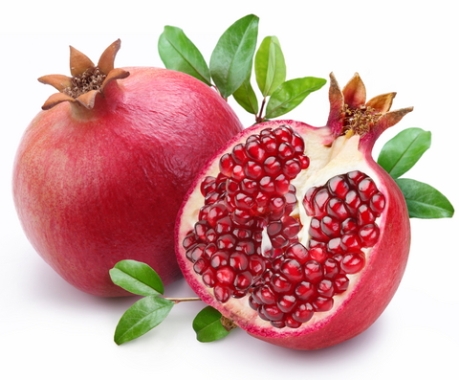 |
Pomegranates for Bruises
Vitamin C in pomegranate supports collagen synthesis, essential for skin and blood vessel repair, helping the bruise heal more quickly.
Memory Loss
|
Pomegranates are beneficial for memory loss due to their neuroprotective and cognitive enhancing properties, which arise mainly from their rich antioxidant and anti-inflammatory compounds. Here's how they support brain health and memory: |
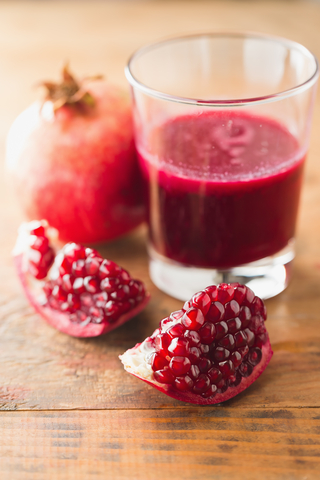 |
Powerful Antioxidants:
Pomegranates contain polyphenols like that reduce oxidative stress in brain cells protecting neurons from damage linked to aging and neurodegenerative diseases.
Anti-inflammatory Effects:
Chronic inflammation in the brain can impair cognitive function. Pomegranate's anti-inflammatory compound helps reduce this inflammation, supporting healthier brain function.
Improved Blood Flow:
Pomegranate consumption has been shown to enhance cerebral blood flow, increasing oxygen and nutrient delivery to brain tissues, which is crucial for memory and cognitive processes.
Promotion of Neurogenesis:
Some studies suggest pomegranate extracts may stimulate the growth of new neurons and synapses, which are essential for learning and memory retention.
Protection Against Alzheimer's Disease:
Research indicates that pomegranate polyphenols can inhibit the formation of beta-amyloid plaques, which are associated with Alzheimer's disease and memory decline
|
|
Pomegranate Juice for Diarrhea
Benefits of Pomegranate Juice for Erectile Dysfunction
- The Juice from the pomegranate seeds is believed to be a potent antioxidant, and supposedly even more so than red wine and even much more than green tea.
- Drinking this juice, it is believed, could also improve erectile function in men with mild to moderate ED.
- Now we are going to get a little technical here when we say that it protects nitric oxide (NO) in a continuing battle against oxidative stress which has an effect on certain biological systems i.e. Erectile Dysfunction.
- Sounds complicated, so as always, we at Home Remedies Haven will simplify this statement by saying that long term use of this juice may help combat erectile dysfunction, backing up ancient aphrodisiac home remedy claims about this tasty juice.
- This is not a scientific fact, but somehow the "ancient ones" knew things that we are only busy testing..... you would lose nothing by making this fruit part of your daily diet.
The Pomegranate is often referred to as the Biblical Fruit and through the years has been used to treat diarrhea. The seeds seem to help bind the bowels.
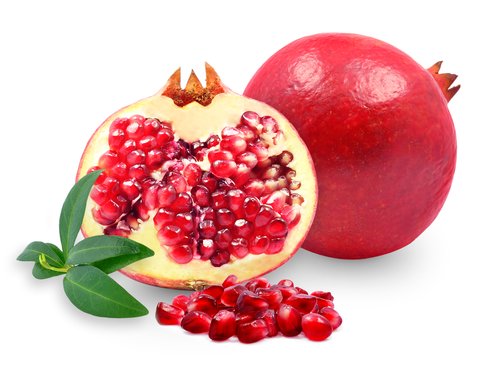
Pomegranate and Arthritis
It has been reported that one of the benefits of pomegranate juice is that it is ranked as a superfood which can relieve inflammation in cartilage cells, thereby making it useful to arthritis sufferers.
There are studies underway to see if it can, in fact, help repair damaged cartilage.
Can you eat Pomegranate Seeds, People Ask?
And the answer is YES! you can eat the pomegranate seeds.
Pomegranates are rich in fiber and the majority is found in the white seeds hiding behind the pockets of juice. And these seeds are rich in flavor, which makes them delicious to eat.
IMPORTANT NOTICE
Home Remedies Haven would like to reassure all the visitors to our site, that we respect your privacy and do not in any way sell personal information.







